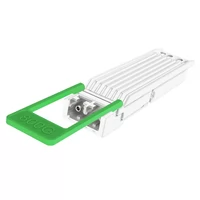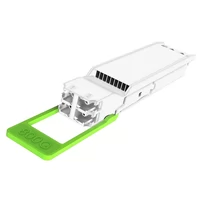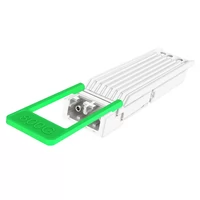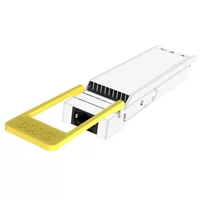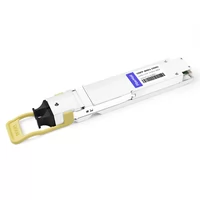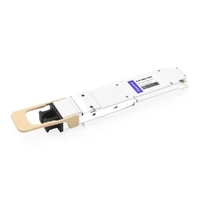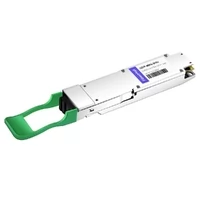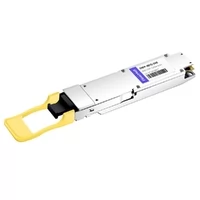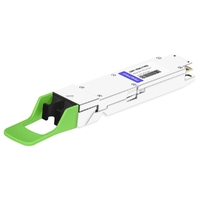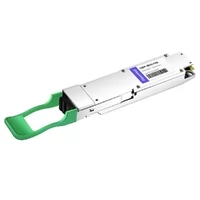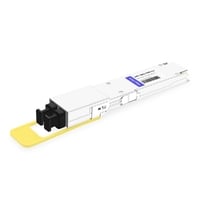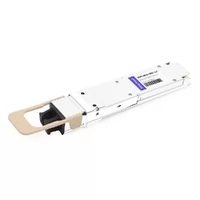Table of Contents
ToggleRoute 1: EML Route
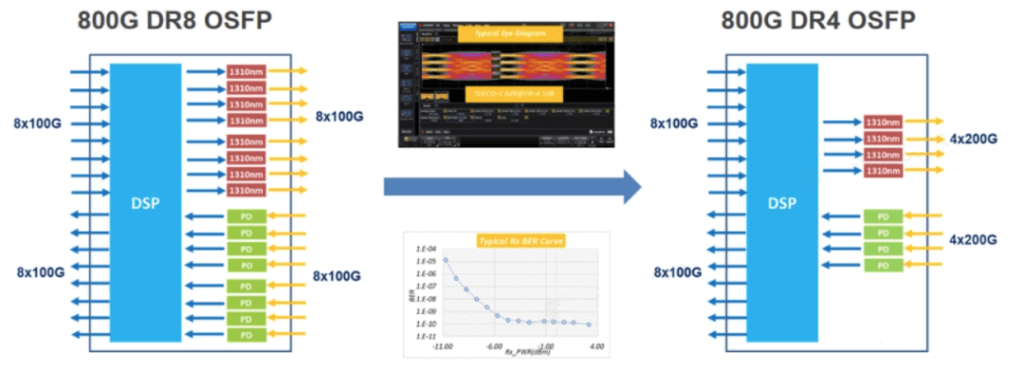
800G DR8 OSFP optical module adopts eight 100G EML lasers, with a large number of lasers and high cost, which is one of the most mature solutions in the current technology. In the future, it is expected to realize 800G DR4 OSFP, halve the number of lasers, reduce the cost, and in the long term, it is expected to be close to the price of 400G optical modules.
Route 2: Silicon Photonics Route
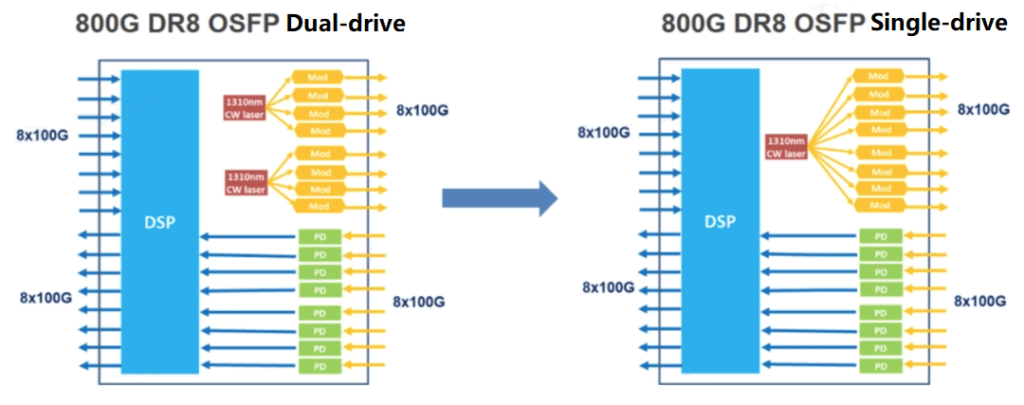
The 800G silicon photonics currently adopts a dual-laser drive solution, which reuses the current 400G DR4 solution. The cost is lower than the EML program. In the future, it will develop into a single-laser driving scheme, using a thin-film lithium niobate modulator to reduce the optical path loss. It can realize a single CW laser driving 8 optical signals. It is still in the sample stage, the mass production time is not determined.
The silicon photonics single-laser solution is expected to achieve mass production in 2025. By then, the 800G DR8 silicon optical module in the cost will be further reduced, but the mainstream is still a dual-laser silicon photonics scheme.
800G 2xFR4 OSFP Evolution Route

The 800G 2xFR4 uses 2 sets of 4-wavelength CWDM 100G EML lasers, each set containing 4 lasers. In the future, it will develop into FR4 using 4 CWDM wavelength 200G EML lasers.
Because 800G FR4 requires 4-wavelength CWDM lasers, the silicon photonics solution will also need to use 4-wavelength CWDM lasers. Therefore, the silicon photonics scheme does not have a cost advantage. The mainstream is the EML scheme, and no manufacturers are studying the silicon photonics scheme for now.
800G SR8 OSFP Evolution Route

The 800G SR8 adopts 8 VCSEL lasers with a transmission distance of 50m (OM3). Due to the short distance, the application scenarios are more limited than 400G SR8. By comparing the transmission distance of 10G, 25G, 50G, and 100G SR optical transceiver modules, we can see that the higher the single-channel rate of the VCSEL laser, the shorter its transmission distance.
As the single-channel rate of optical modules becomes higher and higher, VCSEL has entered a bottleneck period. It is expected that by the time of the 1.6T optical module era, if the 1.6T optical module uses a VCSEL laser, the distance will be further shortened. For customers’ choice, the cable solution of 1.6T will be a better option in terms of cost. Therefore, it is expected that VCSEL laser will withdraw from the market of 1.6T optical modules in the future.
From CPO to LPO

CPO
Compared with the traditional solution, as can be seen in the above figure, the CPO solution reduces one DSP chip, which further reduces power consumption and cost. At the same time, the CPO solution adopts the form of optoelectronic co-encapsulation, directly encapsulating the switching chip (which realizes the optoelectronic conversion function) onto the optical module, reducing the electrical signal loss from the switch to the optical module, thus reducing the delay and overall power consumption.
However, problems also arise due to the optoelectronic co-packaging. Since the switch chip has to be packaged to the optical module, it becomes a problem whether the packaging is done by the optical module or the switch manufacturer. Also, if one optoelectronic chip group is broken, how to repair it, and who will repair it are technical issues. Therefore, it will take at least three years for large-scale mass production and application, or it may remain in a conceptual state for a long time.
LPO
As an alternative to the traditional solution, the LPO solution has gained widespread attention since its launch. The LPO solution uses the technology of LPO linear direct drive to replace the DSP, and uses the TIA and DRIVER chips with high linearity and EQ function, which significantly reduces the power consumption. However, the latency is improved and the system BER and transmission distance are sacrificed. Therefore, LPO is temporarily used in specific areas (short distance) but may be used in the future for up to 500m to meet the largest demand in data centers.
LPO technology is highly dependent on the openness and enhancement of the switch chip performance, such as the Tomahawk5 of T51.2T in signal recovery to improve the function. Overall, LPO, as a form of packaging for optical modules, is a downward evolutionary technology route for pluggable optical modules, which is easier to realize and more deterministic than the CPO solution.
Summary
- EML laser solution will be the mainstream scheme of 800G optical modules in the next two years, and EML demand will increase significantly.
- Silicon photonics scheme has more cost advantages than EML solution, but there are some challenges for mass production, and long-term reliability needs further verification.
- The next-generation 4X200G 800G optical modules will bring more cost advantages, and the long-term cost is expected to be close to that of 400G optical modules.
- LPO optical modules have power and cost advantages and bring value to users, but it will take some time to settle down as it face many technical challenges.
Related Products:
-
 OSFP-800G-FR4 800G OSFP FR4 (200G per line) PAM4 CWDM Duplex LC 2km SMF Optical Transceiver Module
$3500.00
OSFP-800G-FR4 800G OSFP FR4 (200G per line) PAM4 CWDM Duplex LC 2km SMF Optical Transceiver Module
$3500.00
-
 OSFP-800G-2FR2L 800G OSFP 2FR2 (200G per line) PAM4 1291/1311nm 2km DOM Duplex LC SMF Optical Transceiver Module
$3000.00
OSFP-800G-2FR2L 800G OSFP 2FR2 (200G per line) PAM4 1291/1311nm 2km DOM Duplex LC SMF Optical Transceiver Module
$3000.00
-
 OSFP-800G-2FR2 800G OSFP 2FR2 (200G per line) PAM4 1291/1311nm 2km DOM Dual CS SMF Optical Transceiver Module
$3000.00
OSFP-800G-2FR2 800G OSFP 2FR2 (200G per line) PAM4 1291/1311nm 2km DOM Dual CS SMF Optical Transceiver Module
$3000.00
-
 OSFP-800G-DR4 800G OSFP DR4 (200G per line) PAM4 1311nm MPO-12 500m SMF DDM Optical Transceiver Module
$3000.00
OSFP-800G-DR4 800G OSFP DR4 (200G per line) PAM4 1311nm MPO-12 500m SMF DDM Optical Transceiver Module
$3000.00
-
 OSFP-800G-DR8D 800G-DR8 OSFP PAM4 1310nm 500m DOM Dual MTP/MPO-12 SMF Optical Transceiver Module
$850.00
OSFP-800G-DR8D 800G-DR8 OSFP PAM4 1310nm 500m DOM Dual MTP/MPO-12 SMF Optical Transceiver Module
$850.00
-
 OSFP-800G-SR8D OSFP 8x100G SR8 PAM4 850nm 100m DOM Dual MPO-12 MMF Optical Transceiver Module
$650.00
OSFP-800G-SR8D OSFP 8x100G SR8 PAM4 850nm 100m DOM Dual MPO-12 MMF Optical Transceiver Module
$650.00
-
 OSFP-800G-2FR4 OSFP 2x400G FR4 PAM4 CWDM4 2km DOM Dual CS SMF Optical Transceiver Module
$1500.00
OSFP-800G-2FR4 OSFP 2x400G FR4 PAM4 CWDM4 2km DOM Dual CS SMF Optical Transceiver Module
$1500.00
-
 OSFP-800G-DR8 OSFP 8x100G DR PAM4 1310nm MPO-16 500m SMF DDM Optical Transceiver Module
$900.00
OSFP-800G-DR8 OSFP 8x100G DR PAM4 1310nm MPO-16 500m SMF DDM Optical Transceiver Module
$900.00
-
 OSFP-800G-FR8D OSFP 8x100G FR PAM4 1310nm Dual MPO-12 2km SMF Optical Transceiver Module
$1100.00
OSFP-800G-FR8D OSFP 8x100G FR PAM4 1310nm Dual MPO-12 2km SMF Optical Transceiver Module
$1100.00
-
 OSFP-800G-FR8L OSFP 800G FR8 PAM4 CWDM8 Duplex LC 2km SMF Optical Transceiver Module
$3000.00
OSFP-800G-FR8L OSFP 800G FR8 PAM4 CWDM8 Duplex LC 2km SMF Optical Transceiver Module
$3000.00
-
 OSFP-800G-DR8D-FLT 800G-DR8 OSFP Flat Top PAM4 1310nm 500m DOM Dual MTP/MPO-12 SMF Optical Transceiver Module
$1199.00
OSFP-800G-DR8D-FLT 800G-DR8 OSFP Flat Top PAM4 1310nm 500m DOM Dual MTP/MPO-12 SMF Optical Transceiver Module
$1199.00
-
 OSFP-800G-SR8D-FLT OSFP 8x100G SR8 Flat Top PAM4 850nm 100m DOM Dual MPO-12 MMF Optical Transceiver Module
$650.00
OSFP-800G-SR8D-FLT OSFP 8x100G SR8 Flat Top PAM4 850nm 100m DOM Dual MPO-12 MMF Optical Transceiver Module
$650.00

